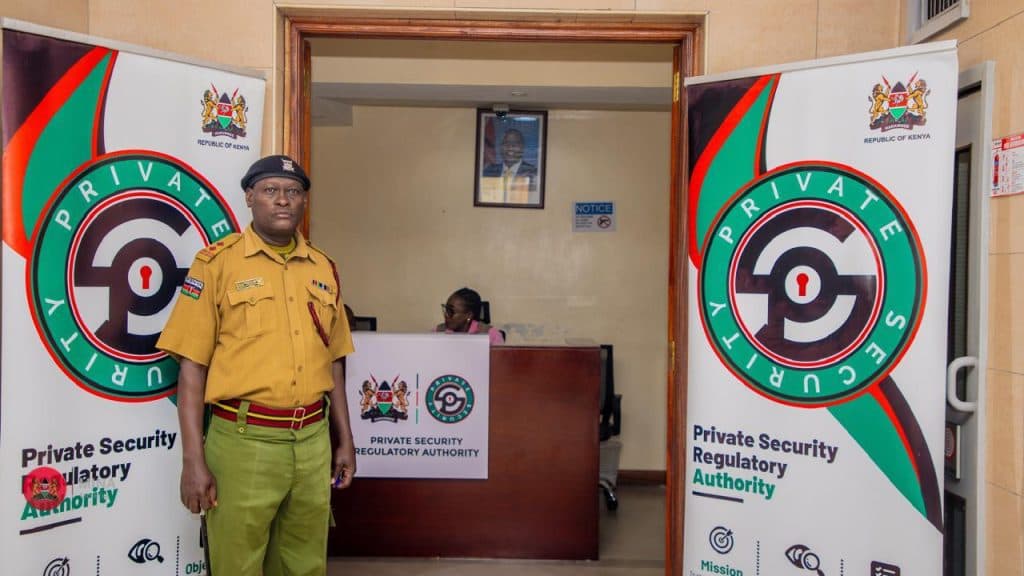We're loading the full news article for you. This includes the article content, images, author information, and related articles.
High Court suspends forums on controversial new rules for Kenya's private security sector, citing insufficient notice for public input on the sweeping changes.

The High Court of Kenya has suspended public participation forums intended to discuss new draft regulations for the private security industry, a sector that employs over 900,000 people. The order, issued on Thursday, November 20, 2025, by Lady Justice Roselyn Aburili in Nairobi, came after a legal challenge argued that the notice period provided by the government was unconstitutionally short.
The case was brought forward by an organization named Security Academy, which argued that the three-day window announced by the Ministry of Interior and the Private Security Regulatory Authority (PSRA) was inadequate for meaningful public engagement. The notice, published on November 18, 2025, in the MyGov newspaper, scheduled forums across seven counties—Nairobi, Mombasa, Kisumu, Nyeri, Kakamega, Machakos, and Garissa—to begin on November 21, 2025.
The petitioner contended that the draft regulations, which span over 50 pages and cover four distinct areas, could not be reasonably reviewed and understood by stakeholders in such a limited timeframe. These regulations include the Draft Private Security (General) Regulations 2025, rules on the appointment of board members, and regulations concerning the use of animals in security services. The court found that the application raised an arguable case that was neither frivolous nor hopeless, granting a stay on the implementation of the public participation notice until the matter is fully heard and determined.
This legal challenge is the latest in a series of disputes between the PSRA, led by Director General Fazul Mahamed, and various stakeholders in the private security sector. The PSRA has been actively pushing for significant reforms aimed at standardizing the industry, improving the welfare of guards, and enhancing national security. However, these efforts have often been met with resistance from private security companies and employer associations, who accuse the regulator of making unilateral decisions without proper consultation.
Earlier in 2024, the PSRA mandated a minimum wage of KSh 30,000 for all private security officers in Nairobi, a move that was challenged and later suspended by the Employment and Labour Relations Court. The regulator also revoked the licenses of nine security firms for alleged non-compliance, a decision that was overturned by an appeals committee within the Ministry of Interior, which cited a lack of due process. The Federation of Kenya Employers (FKE) has been a vocal critic, arguing that the PSRA's directives have jeopardized thousands of jobs and disrupted business operations without fair administrative process.
The private security industry is a critical component of Kenya's security infrastructure, filling gaps left by public policing. The proposed regulations are part of a broader government effort to formalize and professionalize the sector, which has historically been characterized by a lack of standardized training and oversight. Key proposals have included mandatory training, registration, and issuance of Guard Force Numbers (GFNs) for all personnel. There has also been a push to amend the Private Security Regulation Act of 2016 to allow trained and vetted private guards to be armed, particularly when assigned to high-risk areas, a move the government argues would free up over 10,000 police officers for other core duties.
However, the recurring issue of public participation remains a significant hurdle. A previous attempt to introduce regulations in 2019 was rejected by Parliament due to inadequate public consultation. The current court case underscores the constitutional requirement for genuine and substantive public engagement in the legislative process. The petitioner, represented by Brian Kioko, argued that limiting the forums to only a few counties and providing minimal notice was discriminatory and effectively a cosmetic exercise rather than a meaningful one.
The court's decision to halt the process provides a temporary reprieve for security firms and other stakeholders who felt excluded. It forces the Ministry of Interior and the PSRA back to the drawing board to devise a more inclusive and constitutionally compliant approach to public consultation. The substantive motion is expected to be filed within five days, with the Kenya National Private Security Workers Union and the Law Society of Kenya listed as interested parties in the dispute. The outcome of this case will have significant ramifications for the future regulation and professionalization of Kenya's vital private security sector.
Keep the conversation in one place—threads here stay linked to the story and in the forums.
Sign in to start a discussion
Start a conversation about this story and keep it linked here.
Other hot threads
E-sports and Gaming Community in Kenya
Active 9 months ago
The Role of Technology in Modern Agriculture (AgriTech)
Active 9 months ago
Popular Recreational Activities Across Counties
Active 9 months ago
Investing in Youth Sports Development Programs
Active 9 months ago